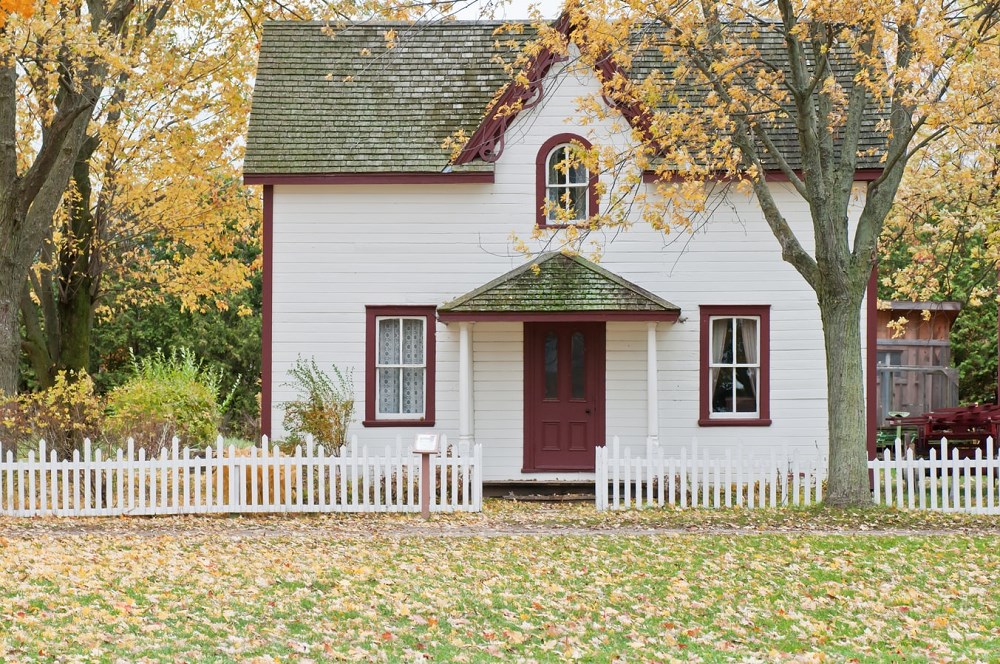
Sometimes retirees are faced with a new financial reality and significant lifestyle changes. But for those homeowners who find downsizing undesirable, there are options that can accommodate.
Housing costs can be a source of significant financial strain, magnified by income reduction. However, many retirees are reluctant to entertain the idea of selling the house and moving out due to a strong emotional attachment to their current residence and the comforts and conveniences it provides.
The following steps can help retirees lower their housing costs, or boost income, without being forced to downsize.
A Part-Time Gig
A side occupation can not only generate additional income in retirement, but it can also help reduce boredom and create a sense of purpose for retirees, says Tina Tehranchian, senior wealth advisor at Assante Capital Management. There are many part-time jobs that seniors can pick up based on their experience, skillset, expertise and interest. To many people, retirement means scaling back, not entirely giving up, their current job they have been doing for years. It’s not uncommon to see people setting up a private consultancy business in retirement to capitalize on the expertise and professional network built over the years. “Operating a consulting business out of a home could not only help bring in extra cash flow but also help reduce taxable income by way of deducting eligible home office expenses,” says Marie DeLauretis, a Calgary-based certified financial planner.
From walking dogs to tutoring and from writing to Uber driving, there is a range of side hustles that can provide additional income while creating opportunities for social interactions.
However, it’s important to assess the impact extra cash may have on the income-tested government grants some may be receiving. “You have to be careful that the additional income does not cause clawbacks in your Old Age Security (OAS) or Guaranteed Income Supplement (GIS) benefits or any other government benefits you may receive that are income-tested,” cautions Tehranchian.
Rental Income
For those living in a relatively large accommodation, renting out the basement or another part of the home could help subsidize monthly housing expenses. “Airbnb has certainly provided a whole new world of opportunities when it comes to renting out a portion of your home and if you are not averse to the idea of hosting strangers in your home, this can be a fairly easy source of additional income in retirement,” says Tehranchian. Online home-sharing sites typically allow homeowners the flexibility to rent out their house, or a portion of it, for a weekend, a week, or for a month, depending on the host’s comfort level and the amount of extra space available.
For greater certainty and predictability of income, a long-term renting arrangement, such as a room for a student, could be a good option. Canada attracts thousands of foreign students each year. Most students are on a tight budget and prefer to rent a room or share accommodation to keep costs low. “Some would even love the security and experience of staying with a Canadian family in their home,” says DeLauretis, while pointing out that “sometimes single seniors simply want company and a feeling of security of having others around.”
As well, many older retirees tend to reduce household costs by sharing accommodation with people in a similar situation. “I have male and female clients that decided to share a dwelling with one or more individuals at similar stages in life, in terms of wealth, health, and family obligations,” she says.
Tapping Home Equity
In certain cases where income is tight and you’re not ready to move, a Home Equity Line of Credit (HELOC) can unlock some cash. “A HELOC is a good idea for having a rainy day fund,” says Tehranchian.
This is predicated on the assumption that the retiree has paid off the mortgage, preferably before retirement. If this has not been accomplished, DeLauretis recommends dipping into other sources of savings, such as the TFSA, to pay off the balance of the mortgage. “This is an automatic saving on the interest being charged, not to mention it eliminates the monthly payment and adds peace of mind,” she says.
However, there are other ways to access home equity that may be more suitable for certain individual financial circumstances. If there are no other sources of income, “you could use a reverse mortgage to tap into your home equity during retirement and use tax-free cash from the line of credit to finance some of your expenses while still living in your home,” says Tehranchian, but cautions that “this will reduce the estate you will leave for your children and you also have to make sure you can afford to pay the monthly interest on the line of credit.”
Hit Unsubscribe
Retirees can realize meaningful savings by looking into making small lifestyle tweaks. After all, money saved is money earned. One of the places they can start is subscription-based services. “These days most popular shows are available free of charge on YouTube and many television channels are also available online,” Tehranchian notes. “Therefore, together with a monthly subscription to Netflix, all your entertainment needs may be met by watching content online.”
Today, a combination of reliable internet connection and a smart TV or an iPad has eliminated the need for cable TV. “Most of my millennial clients do not pay for cable TV and watch all of their entertainment online; retirees can do the same,” argues Tehranchian.
Another place to look at is auto and home insurance premiums. Some auto insurance companies offer reduced premiums if you’re not driving on major highways, says DeLauretis. “Always review your deductibles and coverages and understand what is being covered,” she says. “You may find something that you do not own or use still remains on your coverage list.”
Retirees could also explore ways to lower deductibles and the replacement value for certain household items -- such as a TV, or furniture or jewelry -- covered in their policy. By lowering the replacement value of some household articles and removing assets that you no longer possess from the coverage list, policyholders can save on monthly insurance premiums.
Tighter Tax Planning
An effective way to boost cash flow is to take advantage of all the tax benefits retirees are entitled. Smart tax planning can save thousands of dollars. “I strongly recommend clients use a professional tax preparer and financial advisor to ensure that retirement income is structured as tax-efficiently as possible and to ensure that all eligible tax credits are properly claimed,” asserts DeLauretis.
Key tax planning areas include pension income splitting, claiming of medical expenses, donations, and utilizing the age credits. A competent accountant can uncover things that may have been missed. “The aim here is to keep as many after-tax dollars in your pocket as possible,” she adds.
Further, an investment advisor can help to ensure that your income requirements are being funded from the most tax-efficient sources possible. For instance, it might be more tax advantageous to access funds held in a tax-free savings account (TFSAs), rather than taking all of your income from RRSPs or RIFs.




















